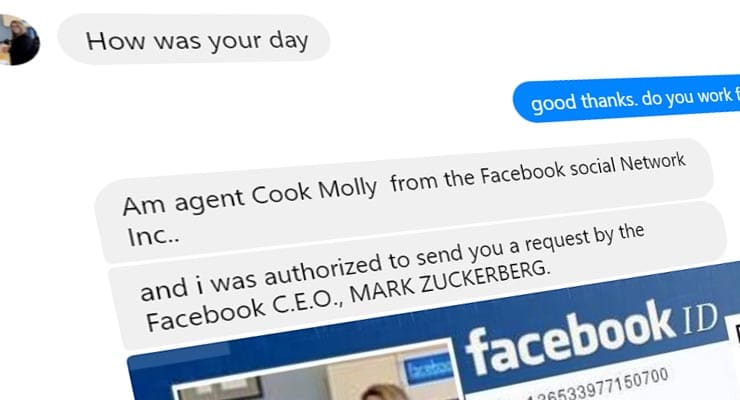A Facebook lottery scammer contacted us; this is our conversation
This week a Facebook scammer decided to contact us. So we did what any anti-scam website would do. We played along and recorded the online conversation for you guys to see.
What sort of Facebook scammer was it? It was the notorious Facebook lottery scam, where victims are told they’ve won the lottery from someone impersonating a “Facebook claims agent”. Usually this scam begins after the scammer messages the victim on Facebook, and may occur after the victim accepts a friend request.
It’s a type of advance fee fraud scam. The conversation is below. Give it a read and you’ll soon see how the scam works. We discuss it further underneath.
(The scammer was called Cook Molly. “Her” messages are gray. Ours are in blue. We provide completely fake details to the scammer. If you interact with a scammer, we strongly recommend doing the same.)
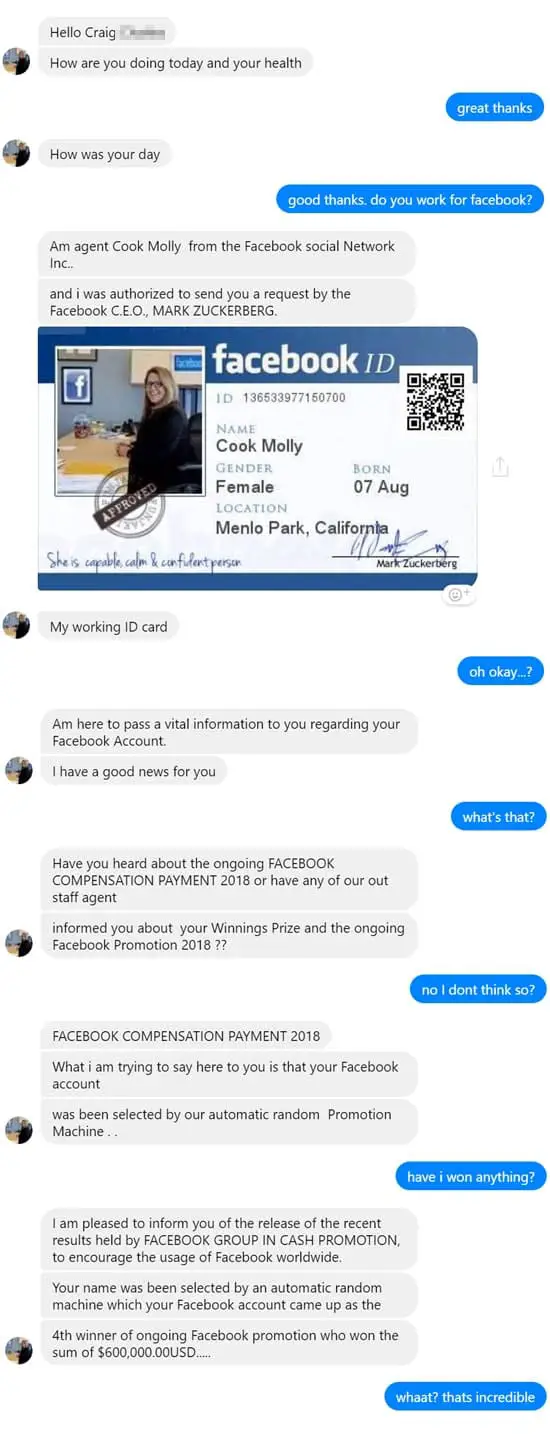
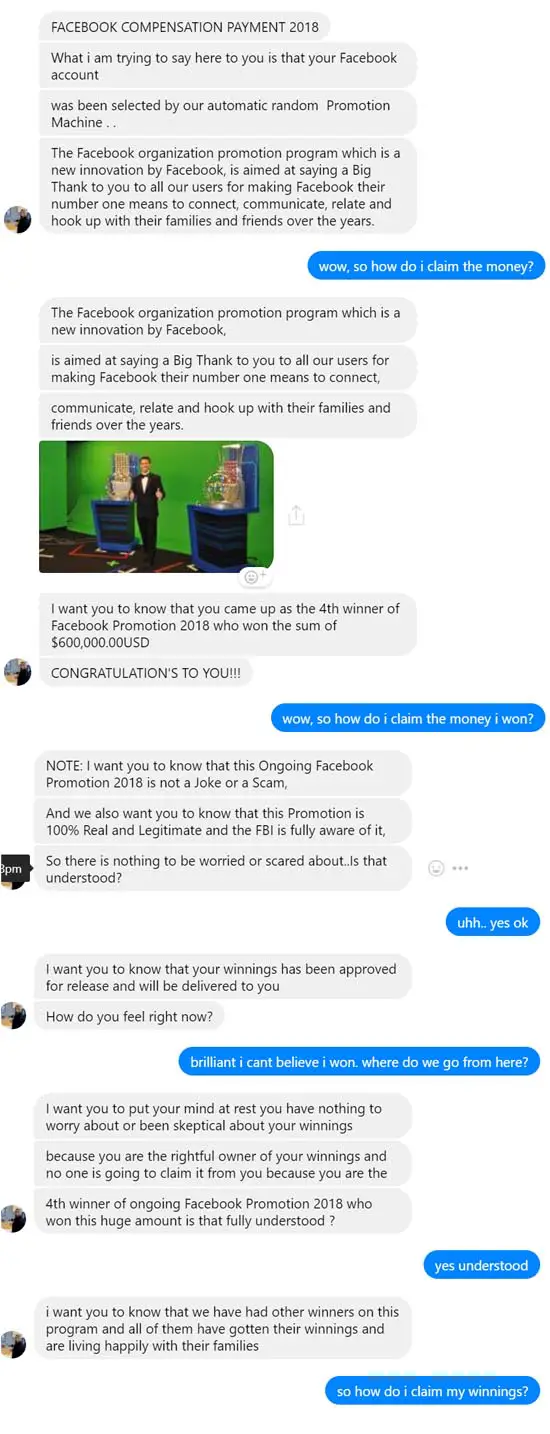
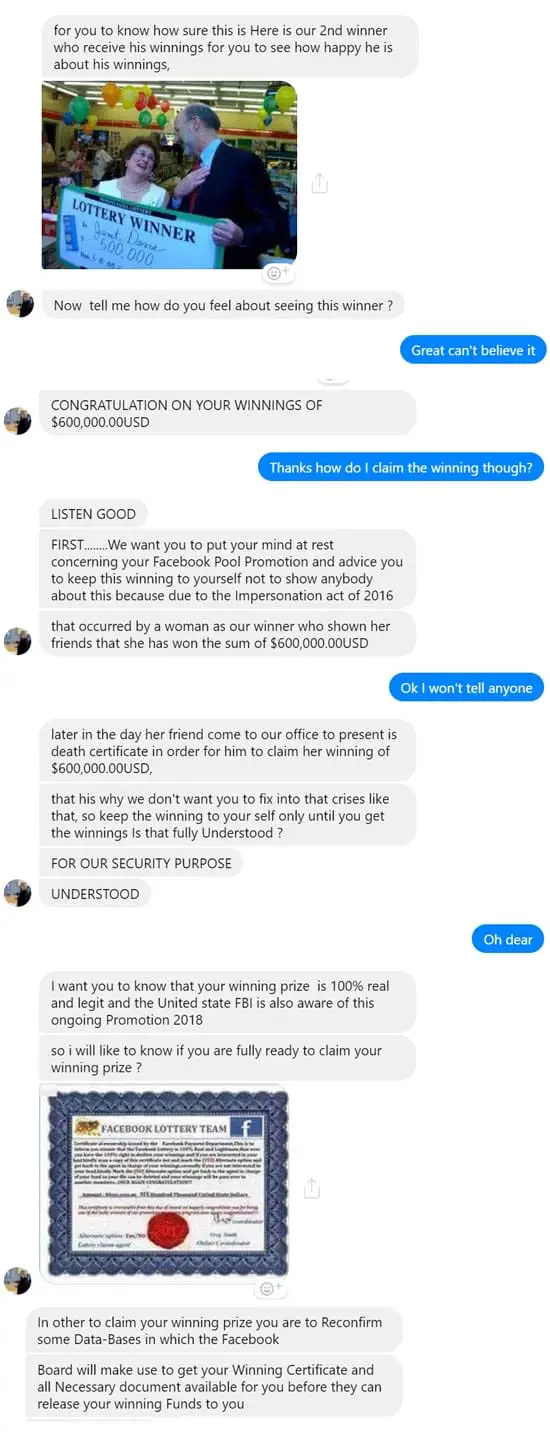
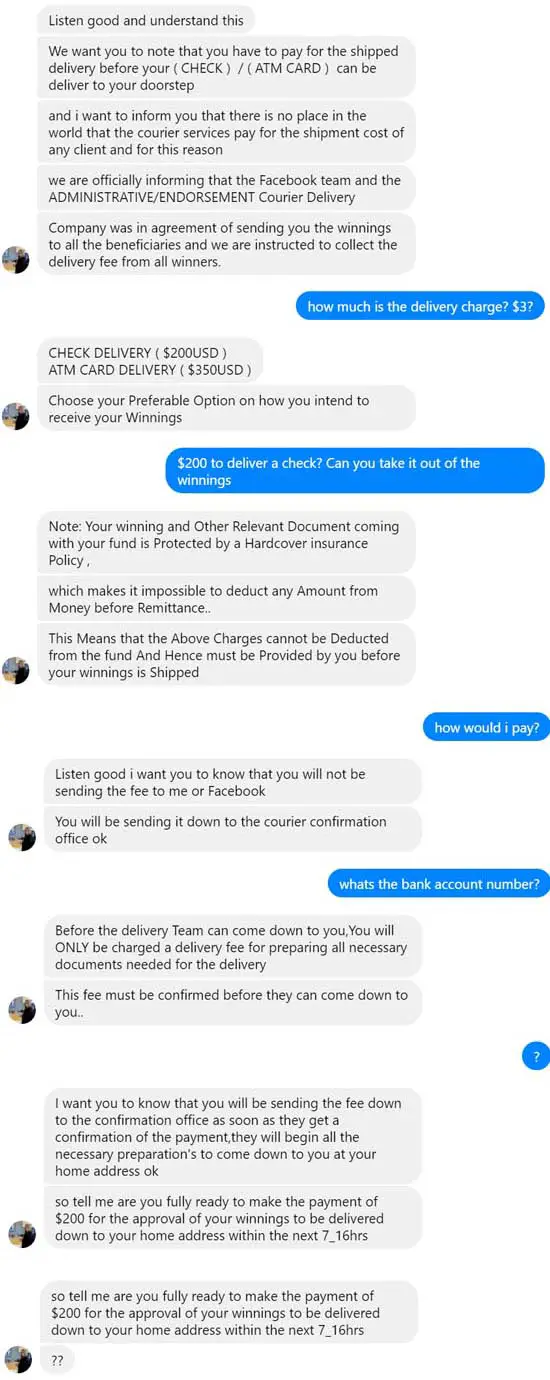

It should be clear at the end how the scam works. Advance fee fraud works on the assumption that a victim will pay the scammer in order to receive a much larger prize. The victim is told that the only way they can obtain the larger prize is to pay a comparatively smaller “advance” fee.
In this case, you can see the victim is promised a multi-million dollar lottery payout, but first they need to pay the $200 “delivery charges”. As soon as those charges are paid by the victim, one of two things will happen – the scammer disappears, or the scammer attempts to trick the victim out of further made up charges. Either way, there is no lottery prize, and the victim will be left out of pocket.
Sponsored Content. Continued below...
There are many different tell-tale signs to this scam, all of which are present in the conversation above.
1. Perhaps most importantly, there is no Facebook lottery, and you’re not going to win a lottery you didn’t enter.
2. If the “claims agent” needs to explain to you multiple times that the lottery win isn’t a scam, then it’s probably a scam.
3. If the victim is told not to tell anybody about the conversation, as they were in the above conversation, then this is a big red flag. This is because the scammer doesn’t want a friend or relative of the victim to recognise that it’s a scam.
4. Needless to say, poor grammar and spelling, as is abundant in the above conversation, is a big red flag.
5. If you’re told you’ve won a large amount of money but you need to pay a smaller amount of money to acquire it, you’re being scammed.
Think before you act, and if in doubt, ask someone for help.
Keep up-to-date with all the latest cybersecurity threats and our tips to stay safe online. Follow us on Facebook, Instagram and Twitter.
Continued below...
Thanks for reading! But before you go… as part of our latest series of articles on how to earn a little extra cash using the Internet (without getting scammed) we have been looking into how you can earn gift vouchers (like Amazon vouchers) using reward-per-action websites such as SwagBucks. If you are interested we even have our own sign-up code to get you started. Want to learn more? We discuss it here. (Or you can just sign-up here and use code Nonsense70SB when registering.)
Become a Facebook Supporter. For 0.99p (~$1.30) a month you can become a Facebook fan, meaning you get an optional Supporter Badge when you comment on our Facebook posts, as well as discounts on our merchandise. You can subscribe here (cancel anytime.)
